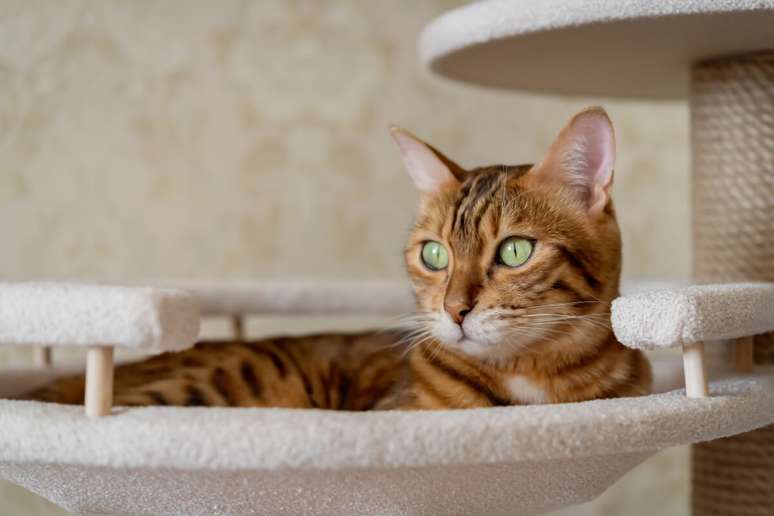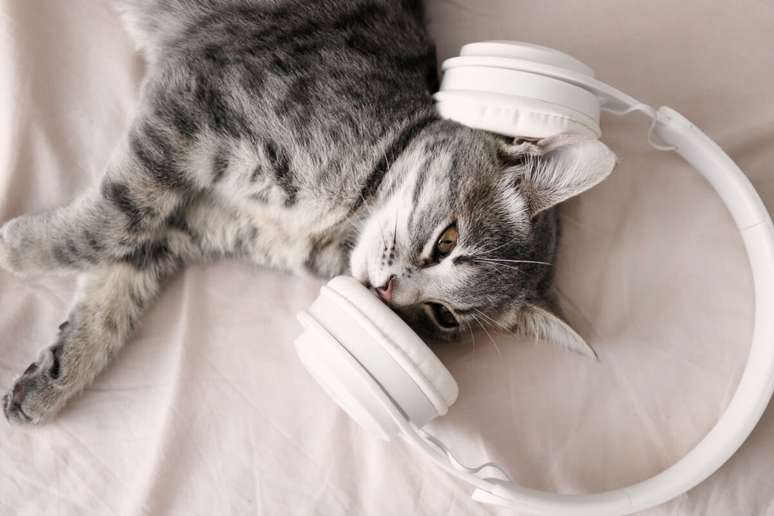Find out what to do to reduce the discomfort in animals caused by certain noises
Cats’ hearing is extremely sensitive. In this way they are able to capture high-frequency sounds that go unnoticed by humans. For this reason, noises that may seem normal to us can turn out to be real nuisances for them.
“Cats are sensitive to loud sounds. Sudden noises, such as those from maintenance appliances, vacuum cleaners and even unusual sounds, can scare them and force them to hide”, adds Marina Tiba, veterinarian and product manager of the Animal Animal Unit of Ceva Saúde .
Noise can stress the animal, causing urinary marking or scratching, diarrhea, sporadic vomiting, excessive vocalization, hair loss, compulsive licking and changes in eating and sleeping habits. “In extreme cases, prolonged stress can even be triggered health problems more serious problems, such as gastrointestinal disorders, skin problems or worsening of the immune system,” says the vet.
Therefore, understanding which sounds generate discomfort helps provide a more comfortable environment for the cat. See below!
1. Fireworks noises
The sudden boom and high volume of fireworks often scare cats. Since they are animals with acute hearing and are territorial, unpredictable and loud sounds make them feel insecure. Therefore, during festive events, such as New Year’s Eve, it is important to provide a safe and peaceful environment for the soulthere, with access to a quiet place where he can hide and feel protected.
2. Vacuum cleaner sound
The noise of the vacuum cleaner is intense and constant and can annoy cats who prefer quiet environments. The volume of the sound, combined with the vibration of the device, can generate fear. If possible, keep your cat in another room while you vacuum, or gradually get used to it by associating the noise with something positive, such as treats.
3. Alarms and sirens
Sirens and alarms produce high-pitched, piercing sounds that stand out to feline hearing. This type of noise is often interpreted as a threat catsactivating their escape instinct. When you notice that this type of noise is making your cat anxious, offer him comfort and a safe place to hide.

4. Metallic sounds
Falling or banging pot lids, as well as other metallic noises, often make cats extremely uncomfortable. The sharp, sudden sound is exaggeratedly captured by the auditory system, easily scaring them. Therefore, it is ideal to avoid handling metal objects roughly in the vicinity pussies.
5. Sound of slamming doors
The sudden sound of doors being closed is another sound that affects cats’ sensitivity. The unpredictability and sonic impact make them enter a state of alert. To avoid this, opt for locks equipped with shock absorbers or simply be careful when closing doors, taking care not to slam against each other forcefully.
6. Very loud music
Although some cats can tolerate music at a moderate volume, too loud a sound can be overwhelming for them. This is because they prefer quiet environments and soft sounds, and constant exposure to high volumes can make them irritable and stressed. If you like loud music, that’s important make sure your pet have a quiet space, away from the speakers.
7. Shouting and arguing
Yelling and fighting create a tense environment, which directly affects the cats. These screeching sounds not only disturb felines’ hearing, but also their emotional environment. When they notice arguments and aggressive sounds, they tend to hide or show signs of stress. Therefore avoid tense environments and clashes in front of the animal.
8. Microwave or blender sound
Appliances that produce loud, continuous noises, such as microwave ovens and blenders, are also a source discomfort for cats. The sound emitted by these devices can be irritating and scary. To minimize the impact, create a more distant place for the animal to stay.
Source: Terra
Ben Stock is a lifestyle journalist and author at Gossipify. He writes about topics such as health, wellness, travel, food and home decor. He provides practical advice and inspiration to improve well-being, keeps readers up to date with latest lifestyle news and trends, known for his engaging writing style, in-depth analysis and unique perspectives.








